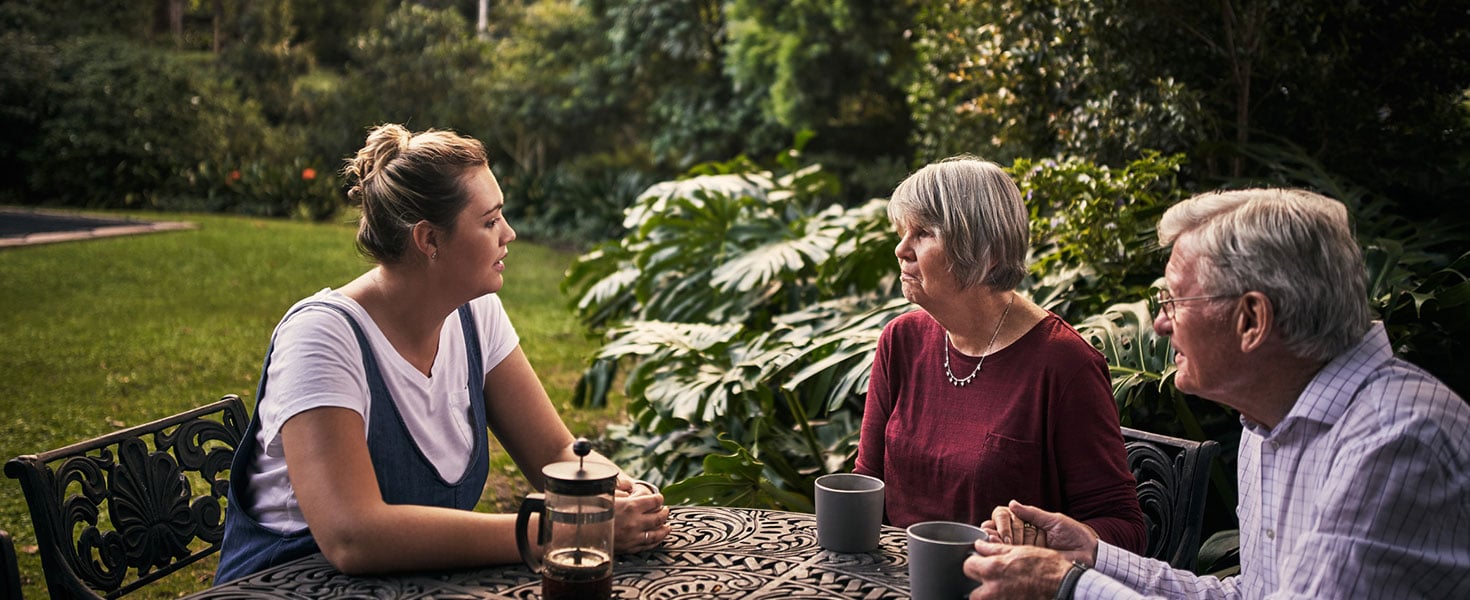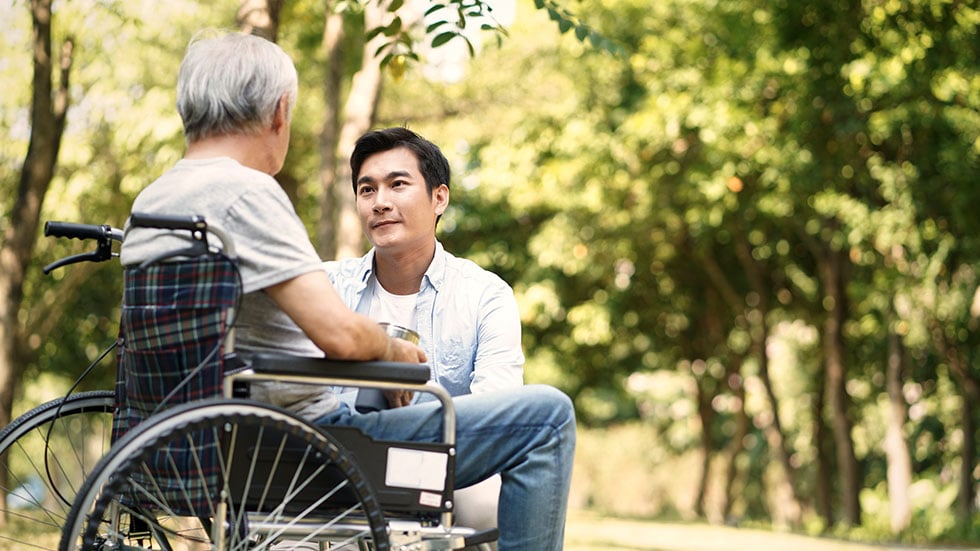How to Talk to Your Aging Parents About Their Health
Practical tips for discussing age-related issues


As parents age, children sometimes go from the ones cared for to the ones providing care. Or, in some cases, it’s their role to lead conversations with parents with declining physical or mental health regarding changes in care, moves to senior living, downsizing, or other difficult topics.
But, these conversations can be difficult, stressful, and even unpleasant. It’s not easy for aging parents to admit they may need more than they can provide themselves. That’s why it’s important to approach these conversations with love, care, and honesty.
Here are some tips on how to have conversations with your aging parents and their health, including how to open the door, and how to have honest dialogue about long-term solutions to their aging and health.

Conversations you may need to have with your aging parents
Talking about aging with a parent can be intense, and often these topics can be overwhelming, scary, or awkward. A few of the common topics you may need to talk to your parents about include:
- Driving
- Estate planning
- Long-term care planning
- Immediate or long-term health issues
- Mental health
- Living arrangements
- Finances
- End-of-life planning

Signs your aging parents may need help
So, when should you start a conversation with your parents about their changing needs? While it’s recommended to start the conversation as early as possible, before physical or mental challenges present themselves, there are a few signs your parents may need additional assistance:
- Increased forgetfulness, especially if it puts your parents’ safety at risk.
- Signs of depression, including moodiness, irritability, fatigue, and insomnia, as well as missing appointments or canceling social plans.
- Recent falls, injuries, or other accidents in the home.
- Noticeable, sudden weight loss.
- Lack of hygiene, including personal hygiene or signs your parents can’t keep up with regular housekeeping and cleaning activities.
- Unexplained bruises or injuries, such as burns, scars, blisters, or peeling skin.
- Mobility problems.

